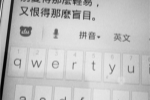
话题作文英语题目格式【一】
16 Fuxing Street
Haidian District
Beijing
Post Code: 100035
People’s Republic of China
Tel: 63211234
Aug. 20, 2004
写信端时,先写发信人的地址,地点的名称按由小到大的顺序排列,然后是其它项目和发信日期。具体次序是:第一行写门牌号和街名;第二行写区名、市(县)名、省(州、邦)名,往国外寄的信,还要写上国家的名称;国家名称的前面加上邮政编码,其后可写上电话号码,最后一行写发信日期。如果写信人的地址是机关单位的名称,则将其作为第一行。如果写信人的单位没有门牌号码和街名,则第一行可写上所在班级或专业组的名称;第二行写系、科、室名称;第三行写学校名称;第四行写市(县)、省(州)名称;然后再写邮政编码、国名、电话号码、发信日期等项。
如果使用标点符号,则在每行末尾加逗号,最后一行的末尾加句号。但当前的信件中行末大都不加标点符号,但在每行之内该用标点符号的地方,仍要用标点。特别要注意的是,门牌号码和街名之间要加逗号。月份和日期之间不可用逗号。在西方国家,城市名称之后往往写有字母或数字(如 New York, 103),表示城市的邮政编码。
关于发信日期的写法,应注意以下几点:
①年份应完全写出,不能简写。
②月份要用英文名称,不要用数字代替。
③月份名称多用公认的缩写式。但 May, June, July, 因为较短,不可缩写。
④写日期时,可用基数词1,2,3,4,5,……28,29,30,31等,也可用序数词 lst, 2nd, 3rd, 4th, 5th, ……28th, 29th, 30th, 31lst等。但最好用基数词,简单明了。
日期可有下列几种写法:
① Oct. 20, 2004
② 10 May., 2004
③ 3rd June, 2004
④ Sept. 16th, 2004
其中,①最为通用。
2、商务信函信内地址(Inside Address, Introductory Address)
信内地址收信人的姓名和地址,写在信纸的左上角,从信纸的左边顶格开始写,低于写信人地址和发信日期一二行,也分并列式和斜列式两种,但应与信端的书写格式保持一致。其次序是,先写收信人姓名、头衔和单位名称,占一二行,然后写地址,可占二至四行,例如:
①并列式
Ms. Joanna Kerry
Peking University
Haidian District, 100871
Beijing
China
②斜列式
Ms. Joanna Kerry
Peking University
Haidian District,100871
Beijing
China
3.商务信函称呼(Salutation)
对收信人的称呼应自成一行,写在低于信内地址一二行的地方,从信纸的左边顶格开始写,每个词的开头字母要大写,至于末尾处的符号,英国人用逗号,但美国和加拿大 英语 则多用冒号。称呼用语可视写信人与收信人的关系而定。给外国人写英文信时,称呼用语要注意以下几点:
①对没有头衔的男性一般称呼 Mr. 。Mr. 用在姓氏之前或姓氏和名字之前,不可只用在名字之前,例如对的称呼,应该是:Mr. 或 Mr. White, 不可是:Mr. Phil。若称呼多个男性,则在姓名前用 Mr. 的复数形式 Messrs. 。对一般以人名为名称的公司和企业常用这种称呼,例如:Messrs. Black and Brothers 布莱克兄弟公司。
②对女性一般称呼 Mrs., Madam 或 Miss。Mrs.用在已婚女子的丈夫的姓氏之前,或姓氏和名字之前,一般不用在名字前 Madame 此词可以单独使用或加在丈夫的`姓名之前 Mrs. 没有复数形式。若称呼多个女性,则在姓名前用 Mme. 的复数形式 Mmes. 而对以女子名字为名称的公司、企业可用 Mesdames 称呼。 Miss 多用于未婚女子,此词可缩写为 Ms ,用于姓氏之前或姓氏和名字之前,一般不用于名字之前。
③对收信人的称呼,也可用头衔或职位的名称,不分性别。例如 Professor (缩写为Prof.),Doctor (缩写为 Dr.), General (缩写为 Gen. 。这些称呼都放在姓氏之前或姓氏和名字之前,如 Prof. (Phil)White等。
④对外公函中对收信人的称呼,可用 Gentlemen (而不是 Gentleman),Dear Sir (s和 My dear Sir(s等。Gentlemen 之前不能加 Dear, 后面也不能带姓名。用 Sirs 时,前面常用 Dear 一词,但也可单独用 Sir。若收信人是妇女,则无论已婚或未婚,都可单独使用Madam 或其复数 Mesdames。
⑤对外国高级官员的称呼,如国家元首、政府首脑、部长、大使、公使和特使等,可用(Dear)Sir, (Dear)Mr. Chairman,(Dear)Mr. Premier, (My dear)Mr. Ambassador,Your Excellency (复数为 Excellencies)。
⑥对君主制国家的国王和皇帝等男性君主,可以 Sir 称呼,对女王、女皇和皇后等女性君主,可用 Madam 称呼。有时也用 Your Majesty 称呼以表示。客气和尊敬Your Majesty 可兼指男性和女性,其复数为 Your Majesties。
⑦对王室成员,如太子、王子、亲王和公主等,一般可用(Dear)Sir 或(Dear)Madam 但在正式尊称时,一般用 Your Highness (复数为 Highnesses。
收信人称呼
先生(男人)Mr./Esq.
夫人(已婚)Mrs.
小姐(未婚)Miss
夫人、小姐统称Ms.
夫妇俩人Mr.and Mrs.
两位或两位以上男子Messrs
两位或两位以上女子(已婚)Mesdames
两位或两位以上小姐(未婚)Misses
常见的头衔(汉英对照)如下:
教授Professor
博士Doctor(Dr.,Ph.D.
医学博士Medical Doctor(M.D.
总统或校长President
主席或董事长Chairman
副主席或副董事长Vice Chairman
副总统或副校长Vice President
首相Prime Minister
总理Premier
省长或州长Governor
市长Mayor
参议员Senator
大使Ambassador
秘书长Secretary General
一秘First Secretary
二秘Second Secretary
院长Director,Dean
副院长Vice Director
系主任Dean,Head,Chair
馆长Chief Librarian,Curator
阁下Excellency
神甫Father
4.商务信函信的正文(Body of the Letter)
信的正文每段第一行应往右缩进约四五个字母。在写事务性信件时,正文一般开门见山,内容简单明了,条理清楚。在写私人信件时,信写好之后若有什么遗漏,可用 P. S.表示补叙。
5.商务信函结束语(Complimentary Close)
结束语是写信人表示自己对收信人的一种谦称,只占一行,低于正文一二行,从信纸的中间或偏右的地方开始写。第一个词的开头字母要大写,末尾用逗号。结束语视写信人与收信人的关系而定例如写给机关、团体或不相识的人的信,一般用:
Yours (very truly, Yours (very faithfully,Yours (very sincerely, 等等。
写给上级和长者的信一般可用:
Yours (very respectfully, Yours (very obediently, Yours gratefully, Yours appreciatively, Your obedient servant, 等等。
写给同志或同事的信一般可用:
Fraternally yours, Comradely yours,等等。
写给熟人或朋友的信可用:
Yours, Ever yours, Yours affectionately, As ever, Yours sincerely Yours devotedly, (Most Fondly yours, Yours excitedly, Intimately yours,等等。
写给亲属或挚友的信一般用:
Yours, Ever yours, Yours as ever, As ever, Yours affectionately, Lovingly yours, (Much Love, With Love,Lovingly, Your loving son, Your most affectionate, Your devoted friend, Devotedly, 等等,意即:“您的”、“永远是您的”、“您的亲爱的”、“您的爱子(孩子、姐妹、侄、侄女、祖母)” 、“您的挚友”等。
写给挚友的信有时也可用:
Yours hurriedly, Yours hastily, Yours in haste, 等等。
写信给挚友,表示歉意时,可用:
Contritely yours, Regretfully yours, Yours in (with regret, Yours in (with deep remorse 等。
在欧洲一些国家里,多把Yours 放在 sincerely等词的前面。在美国和加拿大等国,则多用,把 yours 放在 Sincerely 等词之后。Yours 一词有时也可省略。
6.签名(Signature)
信末的签名一般低于结束语一二行,从信纸中间偏右的地方开始写。若写信人是女性,与收信人又不相识,则一般在署名前用括号注上 Miss, Mrs.或 Ms.,以便对方回信时知道如何称呼。有的还有署名后写上自己的职称、职务或头衔
7.附件(Enclosure)
信件若有附件,应在左下角注明 Encl. 或 Enc.。若附件不止一个,则应写出2(或3,4,5等)Encls.,例如:
Enc: Resume
Encls:Grade Certificate
8.再启(Postscript, 缩写为 P. S.)
再启部分用于补叙正文中遗漏的话,一般应尽量少用,正式的函件中更应避免使用。
9.私人和公务信函--注意事项
首先,写信者应设身处地想到对方,尊重对方的风俗习惯。
其次,英文信应该行文流畅、言简意赅,避免冗长。这就是说,写信者应用尽可能少的文字表达其必须传递的信息,而且写信者应将其所需传递的信息表达清楚,以免对方产生误解。书信交往,同样需要以礼待人。因而在写信过程中,要避免伤害对方感情,措辞上多选用些礼貌婉转词语。
最后,除了避免语法、拼写、标点错误外,信中所引用的史料、数据等也应准确无误.私人和公务信函--常用句式。常用的起首语有:
1)Thank you for your letter dated Dec.22,1969.
2Many thanks for your letter of Sept.5,1997.
3A thousand thanks for your kind letter of June 5,1997.
4Your kind letter of November 22th arrived this morning.
5Your letter which arrived this morning gave me great comfort.
6In reply to your letter dated 4th July,I want to say…
7Thank you very much for your letter of August 2 and the gift you sent me on Christmas Eve.
8What a treat to receive your kind letter of May 5th!
9It is always a thrill to see your nice handwriting.
10First of all I must thank you for your kind assistance and high attention to me .
11With great delight I learn from your letter of this Sunday that …
12I wish to apply for teaching position you are offering.
13I am too excited and delighted at your good news.
14I am very obliged to you for your warm congratulations.…
15I am very much pleased to inform you that my visit to your country has been approved.
常用的结束语有:
1)Awaiting your good news,
2Looking forward to your early reply,
3Hoping to hear from you soon,
4We await your good news.
5I hope to hear from you very soon.
6We look forward to your reply at your earliest convenience.
7I look forward to our next meeting there in Los Angeles.
8Your early reply will be highly appreciated.
9Any other particulars wanted we shall be pleased to send you.
10The help you give me is sincerely valued.
11I hope everything will be well with you .
12Please let us know if you want more information.
13I hope you always enjoy yourself.
14I wish you very success in the coming year.
15Please remember me to your family.
16With best regards to your family.
17All the best.
18With love and good wishes.
话题作文英语题目格式【二】
It ______ ______ ______ the train will be late.
答案:is likely that
2. It is likely that the typhoon will sweep across the island.
The typhoon ______ ______ ______ ______ across the island.
答案:is likely to sweep
3. I think trying to stop the couple quarrelling will be of no use.
I think it's ______ ______ ______ to stop the couple quarrelling.
答案:no use trying
4. Every time I was in trouble, he had no hesitation in helping me.
Every time I was in trouble, he came to help me ______ ______.
答案:without hesitation
5. He never hesitates to help if I have any problem.
He always helps me ______ ______ if I have any problem.
答案:without hesitation
6. I crossed the street so as not to meet him, but he saw me and came running towards me.
I crossed the street to ______ ______ him, but he saw me and came running towards me.
答案:avoid seeing
7. It seems that the students in that class have all passed the qualified exam.
All of the students in that class ______ ______ ______ ______ the qualified exam.
答案:seem to have passed
8. It seems that the boys of the class are playing football on the playground.
The boys of the class ______ ______ ______ ______ football on the playground.
答案:seem to be playing
话题作文英语题目格式【三】
Dear Sir,
I was very interested in your advertisement in todays edition of The Evening Post and I should like to apply to be a member of the Amazon Expedition team.
I am twenty-three years old and have an honors degree in Botany from Bath University. Since leaving university I have been working in a research laboratory but my contract comes to an end in six weeks. I would particularly like to join the expedition for the opportunity it would give me to study the plant life of the area.
I enjoy several outdoor activities including rowing and rock climbing and I consider myself to be both fit and healthy enough to undertake such an expedition.
If you would like me to attend an interview, I would be able to come at any time convenient to you, (J1 my employers have agreed to give me time off for the purpose.
I look forward to hearing from you.
Yours faithfully,
Lily Ma
话题作文英语题目格式【四】
Leaders, Members:
My name is Liyuanyuan. Im a boy and I am 12 yeas old, there are 4 people in my family. My father is a Chemistry teacher. He teaches chemistry in Zhengxin senior high school.
My mother is a Chinese teacher. She teaches Chinese in the university. I have an elder brother; he is a junior middle school student and is preparing for the entrance exam.
Im tall and I have a pair of big eyes. Now, I am in Grade 5, my study is not very good, but I like English, so my English is better than others.
I like singing, drawing, playing basketball. I like to read English story books in my free time. Sometimes I surf the Internet and download the English study materials. Because it also enlarges my vocabulary words. I think one day I can master English. Thank you.
话题作文英语题目格式【五】
Dear Paul,
How was I to know that you were watching me sleep? I awoke to see you laying there and just then, you smiled and said hi and that just melted me. I wish with all of my heart that I could wake to your beautiful eyes for the rest of my life.I hated to leave but as I have told you, I left a big part of me with you.
It is yours now so, take care and tread lightly. I wish that I could be with you now as you face so many struggles, but know that I am there in spirit and am praying for everything to work out for you. No matter where this life takes us, together or not, know that you and your girls will always be in my heart and \"my favorite.\" Love always,Amanda
话题作文英语题目格式【六】
敬爱的班主任:
您好!
岁月匆匆,转眼间今年我已是六年级的学生了。回顾我的成长之路,无下渗透着你们的汗水和艰辛。自从您担任我的班主任以来,我和同学们一样打心眼里高兴、欢喜,心怀敬意。
您是一位良师,您也是一位严师。
我是一个裹足不前的学生,写好像流水账,文章好像白开水,平淡无味,没有文采。然而,您却如慈母扶着我学步般鼓励我向前走。在每次批阅我的作文时,您总是有意识地将所谓的好词好句圈划出来,又“毫不留情”地删除或纠正;您从不放过一个错别字甚至一个标点符号;您的批语又是多么的和蔼可敬,又是那么的给力。哪怕有一点点的进步您也要大加赞赏,使我受到了极大鼓舞。从此以后,我树立起了“一定要学写好作文”的信心。是您给了我前行的勇气和力量。爷爷高兴地对着我说:“良师育良材,严师出高徒。”您不愧为一位“教育能手”,又是一位名副其实的班主任。老师,您总以眷眷爱生之心,潜移默化着我。日复一日在“教”与“育”字上狠下功夫,您把每范文课文讲得仿佛是一道道风景、一个个故事,声色俱全、淋漓尽致,我仿佛身临其境。使我从中得到知识,快乐成长。是您以“诲人不倦”、言传身教的态度和形象影响着我,还经常以“少年不努力,老大徒伤悲、莫等闲、只争朝夕”等之类的古训,要求我抓住时间认真读书、刻苦学习。您的暾暾教导我铭记于心,“一句话,一辈子”。真是功夫不负有心人,我终于得到了提高,得到了“优☆”和考试满分的成绩,您的心血没有白费,您为之窃喜。从中使我感受到您的光荣称号多么的来之不易——敬意由然而生,一日为师,终身难忘。
尊敬的老师,您正是为了我们的明天而一丝不苟的耕耘着;正是为了我们的将来而又无怨无悔的奉献着。俗话说得好:精诚所至,金石为开。然而,我只能这样说:“班主任老师,在您的关怀启迪下,我一定会努力学习,刻苦钻研,以优异的成绩向您回报。”
此致,祝您工作顺利、凡事如意!
学生:XX
话题作文英语题目格式【七】
一般书信可分为称呼、正文、结尾、署名、日期五个部分,每个部分都有一定的格式。
(1)称呼。根据自己和收信人的关系,平时怎么称呼,在信中就怎么写。如给爸爸写信,称呼就写爸爸;写信给老师、同学的信,称呼就写*老师、**同学。称呼要从第一行顶格写起。称呼后面要加冒号(:),表示下面有话要说。
(2)正文。这是信的主要部分。写信人要说的话都写在这里。正文的开头空两格,通常先写问候的话。如果是回信,先要写明来信收到,并对来信中提及的问题或要求办理的事情作出回答。如果写的事情较多,可以分段写,一件事情写一段。每段起行空两格,转折顶格。
(3)结尾。结尾可根据写信人跟随收信人的关系和具体情况,写上表示祝愿,勉励或敬意的祝颂语。如此致敬礼、祝你健康等等。祝愿语一般分两行写。以此致敬礼为例,此致可以紧接正文之后写,也可以另起一行空两格写,敬礼则一定要另起一行顶格写。
(4)署名。在结尾的再下一行的后半行写自己的名字,署名的前面也可以写上跟随对方相应的称呼,如儿、弟、学生等等。
(5)日期。可以写在署名的后面,也可以写在署名下一行的后半行。最报写清年月日,以便查考。
此外,如果信已经写完,又发现内容有遗漏,或某件事叙述不够全面时,在信的后面还可以补写。但是在补写的话前面要加上还有、另外、再;或在后面加上又及等字样。
信写好了,要寄出去,还必须要有信封。现在的标准信封是横写的。信封上面写惧人的邮政编码、收信人地址;中间写收信人的姓名;下面写寄信人的地址、姓氏及邮政编码。
话题作文英语题目格式【八】
商务英语书信(Business or Commercial English Correspondence)是指交易时所使用的通信,英语书信格式与称谓的差异。在美国,常用Business writing,它包括书信、电报、电话、电传、报告书、明信片等。英语和美语在书信体例方面存在着一定的差异,比如信头和称呼、书信格式、遣词、结尾客套语等均有所不同。
英国书信保守,美国书信有活力。
英国书信较为保守,许多英国人喜欢用老式书信体,用词较为正式刻板,而美国书信语言非常生气、有活力,格式也较为简便。因此当我们写信的对象是英国或其旧殖民地国家时,要使用标准式英语Queens English;如果写信的对象是美国或美国势力范围的地区时,就要用美国英语。当然,英国式的语言文化近年来也有变化,但总体来说,两者间的差异是很明显的。











